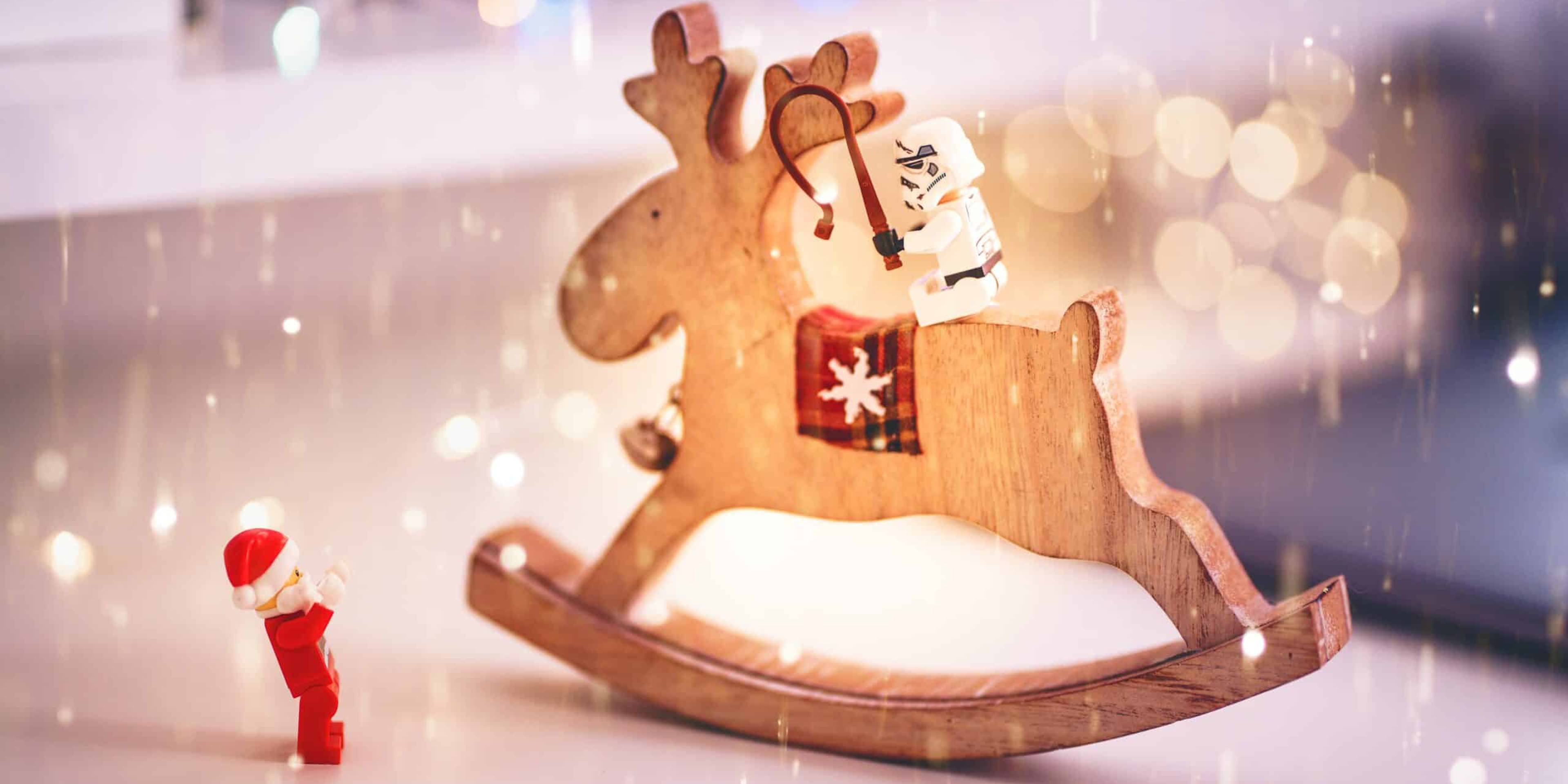November 25, 2020
The Magic of Play
By Dr Kathy Weston

Reflect
I have been mulling over when my Christmas tree should go up. Not a big decision in normal times, but this year, adding some sparkle to the domestic landscape seems important. Every year, when I think I just can’t be bothered to go ‘all out’ on the decoration front, I am reminded of the words of my brilliant colleague, who worked in early years education. “Children need to experience magic. They are magical thinkers. You must make Christmas special for them”.
She then proceeded to tell me how, every year, she had created new and exciting festive rituals; family quizzes and games, planting giant footsteps in the snow and leaving a half-eaten biscuit by the fire grate. Children innately crave magic and are entirely responsive to it. Magic stretches children’s vast imaginations and gets them thinking, pondering and weighing things up. It can be fun too.
Injecting family life with magical thinking doesn’t have to be confined to the holiday period. One of my biggest pieces of advice to parents with young children, is to recognise the power of play in family life; play that involves magical thinking, puppetry, laughter, imagination, role-play and which has a dose of sensory treats.
Opportunities to engage in high quality play have been threatened by the current pandemic; undoubtedly due, in part, to school and playground closures, as well as factors such as parental stress. It is not easy to play freely when you have a million worries on your mind and, as adults, we tend to reward ourselves with playtime once duties have been done. This won’t work for children who need play for social connection, to aid learning and, critically, to help them process what might be a knot of tangled emotions in a confusing world.
Motivate
We need magical play more than ever in family life. A new phrase is being used in the research community to reflect changes that are occurring within children’s play interactions. “Pandemic play” is a term that explicitly recognises how narratives within play are being shaped or influenced by worries about the virus.
It is being investigated, as we speak, by academics such as Professor Helen Dodd, who is currently collating examples for her research (do participate!).
I have witnessed ‘pandemic play’ in my own household, when, back in April, my 11 year old invented a game called (wait for it)….”Virus Monopoly”. The aim of the game was to avoid getting sick. The ‘Go to Jail’ section morphed into the ICU at the hospital and Community Chest cards offered players total immunity or free vaccinations. For the unlucky, a random Chance card might mean having to pay the government extra taxes to fund the NHS.
His research for the game was thorough; he looked up a range of viruses and how people caught them. The game initiated rich family conversations about viruses, virology and the scientific innovation that could eventually move us out of Lockdown Jail!
Most of all, this kind of play served as an acute reminder of children’s need to process what is going on around them, in ways that make sense to them. Meaning-making through play is an intuitive response by children to external turmoil. It is fundamental to children’s mental health and, as parents, we need to both recognise this, and do what we can to facilitate it.
Support
Play is not the preserve of the very young. It is good for all of us and a necessary means of bringing increased joy into family life.
A recent giggling fit at the dinner table (as my husband and I shared a private joke) provoked a look of bemusement on the face of my teen. He wasn’t used to seeing us in ‘fun’ mode at that time of day and wasn’t quite sure how to react. At the same time, I could tell he relished the spectacle. After all, if one’s parent is happy and unfazed, all seems right with the world.
Laughter is one of the most powerful and natural methodologies for reframing challenges and alleviating stress. This festive period, focus on filling your home with as many mood-shifting, magical, sensory treats as you can muster (fairy lights are an easy win), as well as thinking about ways in which you can get the whole family chuckling.
Neuroscientists tell us that our brains respond positively to novelty; rather than falling into traditional festive patterns this year, can you try and do things differently?
Are you a Tooled Up member?
For parents in ‘Tooled Up’ schools, read ‘How to bond with your child over Christmas’ and peruse my resource on screen time during holiday periods. Watch out for my upcoming podcast with anxiety researcher, Professor Helen Dodd and check out the newly added Family Anxiety Manifesto, which gives families a starting point for discussions around fears and worries.